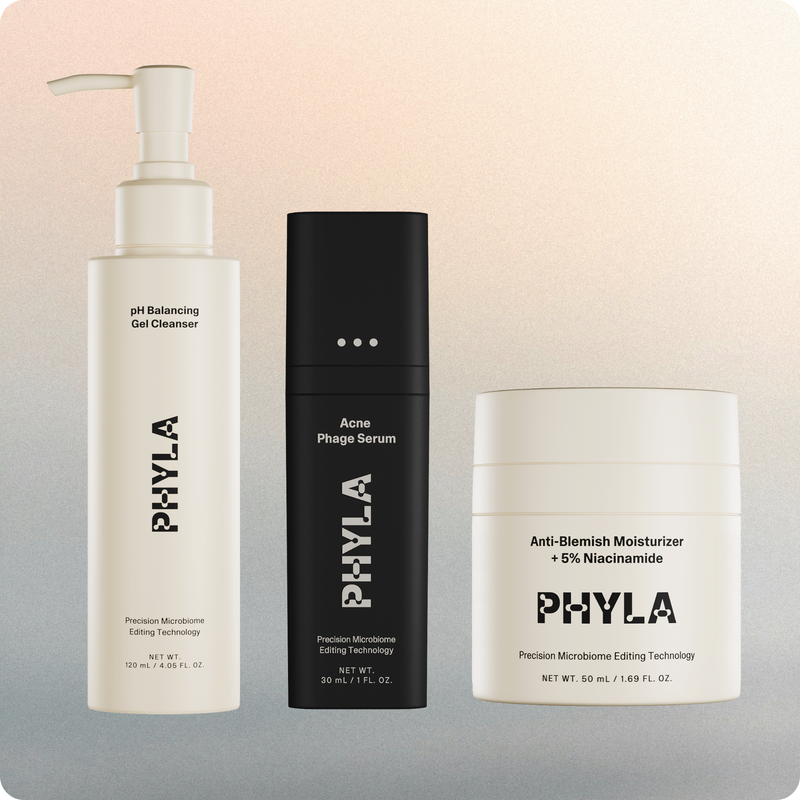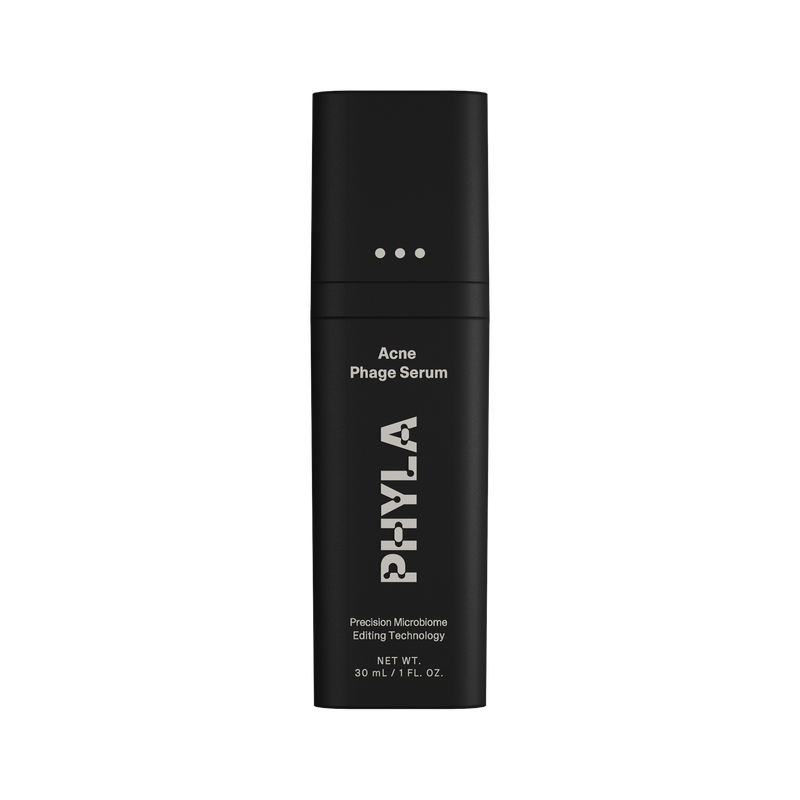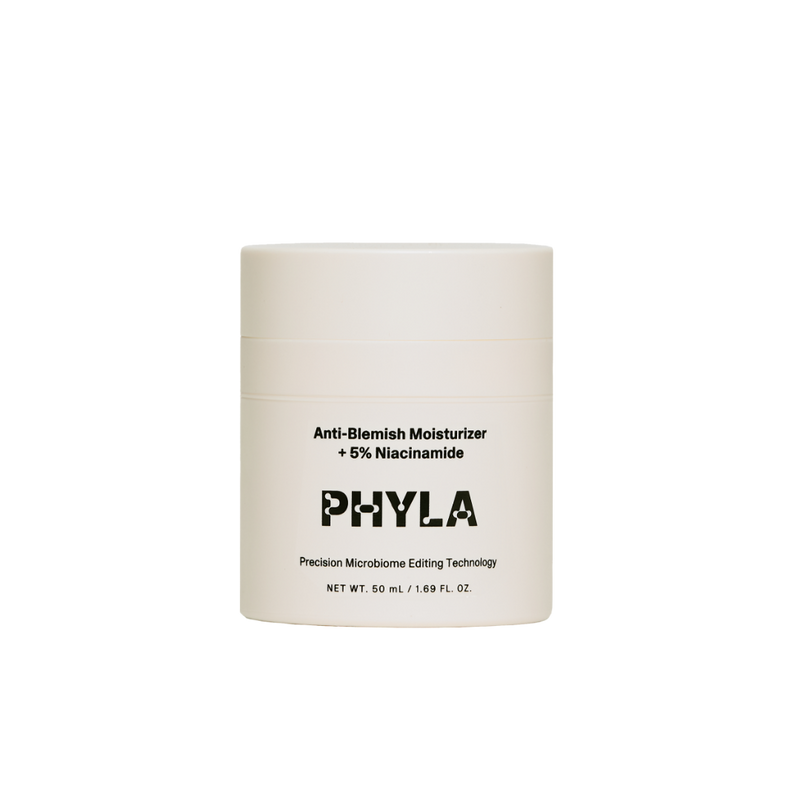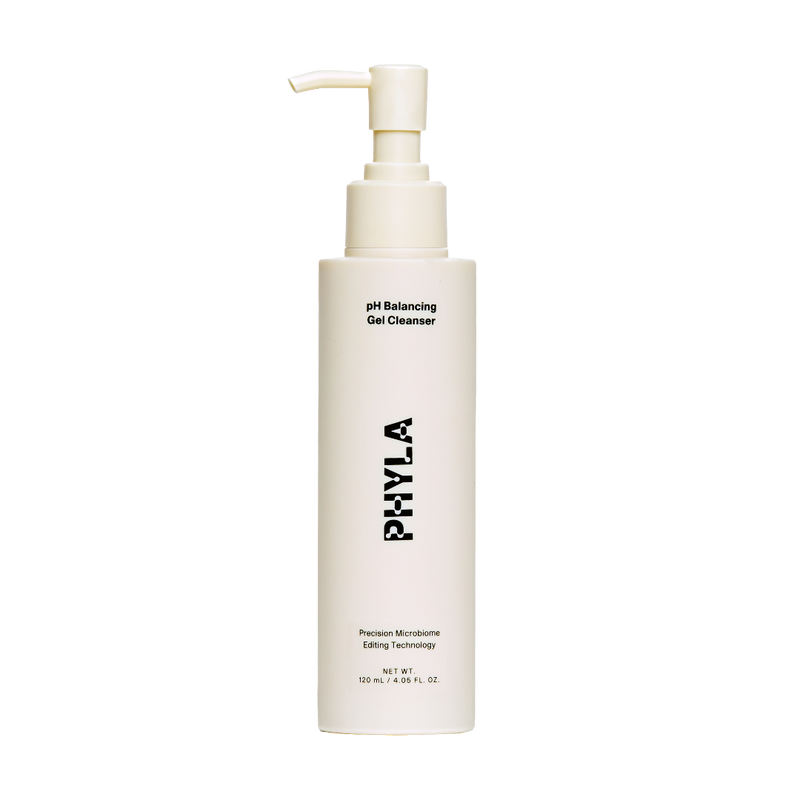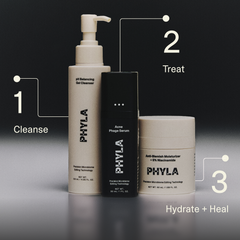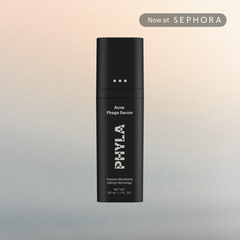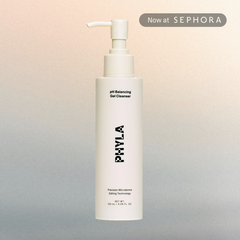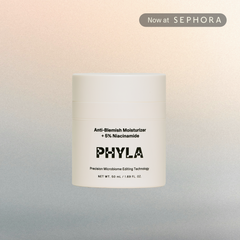How Can Improving Your Skin Microbiome Prevent Acne?
There is a lot of talk about the importance of your gut’s microbiome, but did you know your skin also has its very own microbiome, too? Continue for more.

You probably have heard the term ‘microbiome’ before, typically in relation to your gut and the gut microbiome. There’s been a lot of hoo-hah in recent years about the importance of your gut’s microbiome, but did you know your skin also has its very own microbiome, too?
In fact, your skin is a pretty spectacular organ, not just because it’s the largest, but also because it’s so well connected to the rest of your body’s organs and systems.
Today, many experts are discovering that beyond what we already knew your skin could do, it may actually do so much more! Such intrigue! Let’s dive deeper and learn more about this skin microbiome, shall we?
What is Your Skin Microbiome?
The term ‘microbiome’ refers to a wide variety of microorganisms, such as bacteria, fungi, and viruses that inhabit a common space. A microbiome is a tiny ecosystem all of its own.
In the human body, you have a gut microbiome, replete with probiotics and prebiotics–– otherwise known as the good bacteria, as well as the germs which you can call the ‘bad bacteria’. Similarly, as mentioned you also have a skin microbiome.
Your skin microbiome, also sometimes called your skin flora, refers to the host of bacteria, viruses, fungi, and other germs that live on your skin’s surface. Some of the bacteria in the gut and skin microbiome are similar, whereas some only exist in the gut or skin.
For your skin microbiome in particular, some bacteria and viruses are only present in one area of your skin, yet not the other. It’s all dependent on the moisture content in your hair, your skin type, the amount of light that area receives, and more.
Additionally, your skin microbiome changes with age, and is different for different genders. So the skin microbiome of a male will be different from that of a female.
Remember that your skin is the largest organ in the human body and as such, performs many essential functions for your body and your immune system. In layman’s terms, human skin serves as a sort of full-body barrier against a variety of external factors.
To keep your skin healthy, the good bacteria in your skin microbiome works tirelessly to strengthen this barrier, fights off bad bacteria that may assault this barrier, and runs a feedback loop that communicates with your main immune system so that your skin and body work together efficiently.
How Does Your Skin Microbiome Work?
Below is a deeper breakdown of how your skin microbiome works and the benefits to making sure you have a healthy one.
Protects You from Internal Infections
Recall that the gut microbiome protects your body from infections in your digestive track. If a bad bacteria or virus enters the gut microbiome, the host bugs fight and kill it off.
Similarly, your skin microbiome works in much the same way to fight off infections. It does it by simply by out-numbering the bad virus and bacteria.
Additionally, your skin microbiome works optimally in a slightly acidic pH environment, whereas pathogens tend to die off in this acidic medium. This is why your diet can affect the quality of your skin.
It’s also why, wen you are sick, it can show on your face. Moral of the story? If your gut microbiome is fighting something off and being compromised, your skin microbiome will be affected as well.
Communicates with Your Immune System
The skin microbiome and the main immune system of your body stay in constant contact. This communication between the two systems happens at the subcutaneous fat layer within the layers of your skin.
Your immune system feeds the skin microbiome information, and sends warnings about potential infections, and vice versa. When one needs help, the other sends it.
This is also why your skin microbiome can relieve skin inflammation and prevent it from happening again; it gets help from the immune system, which releases antimicrobial peptides to soothe the irritation.
Protects You Against Environmental Aggressors
Similarly, the skin microbiome also protects your skin from environmental factors. These aggressors include UV rays and sun exposure, free radical and oxidative damage, as well as allergens, pollution, etc. The skin microbiome also aids in wound healing, which is beneficial if you have frequent acne flare ups.
How Your Skin Microbiome Can Help Acne
Although acne is an extremely common skin problem, the exact cause behind acne is still unknown. However, new research indicates that host immunity in the skin microbiome plays an important role in its development. Moreover, studies show that probiotics can be used as targeted antimicrobial therapy for acne.
Since acne is an inflammatory condition of the skin, causing breakouts and pimples, there are multiple contributing factors that can potentially trigger it.
These include things like:
- Stress
- Hormonal changes
- Lifestyle and diet
- Environmental conditions
- Skin products
However, the development of acne really boils down to one thing––how strong your skin is. Weak skin is dehydrated, under-nourished, and vulnerable to attacks by external factors. Meanwhile, strong skin comes with a strong barrier that provides protection against external aggressors. That’s where your skin microbiome comes into play.
Unfortunately, using skincare products that kill all of the skin bacterium both good and bad––like benzoyl peroxide––can strip your skin of its first line of defense. When the human skin microbiome is compromised, it’s open to attacks and triggers of all kinds on all fronts. Not to mention, skincare products that dry out your skin and strip it of your skin’s natural oils can also affect the natural skin microbiome and lead to an even worse skin condition.
In contrast, using probiotics through food, as well as skincare products that contain probiotics, you can actually feed and strengthen your skin microbiome. If your microbiome is strong and healthy, the good bacteria will fight the acne causing bacteria and kill it––thus preventing acne and breakouts.
How to Improve Your Skin Microbiome
Now that we have established that the skin microbiome, gut microbiome, and your immune system are all magnificently related, you can begin to understand that improving your skin microbiome doesn’t just involve keeping your skin healthy. Instead, it requires a healthy body overall to function optimally. Below are some ways you can support a healthy body and by extension, a healthy skin microbiome.
Eat Healthy Foods
To naturally increase the good bacteria in your skin (and gut) microbiome, you need to eat foods that are natural and full of essential nutrients. These include proteins, healthy fats, (some) healthy carbohydrates, as well as vitamins, minerals, plus other nutrients gained through fruits, vegetables, and water. Remember that a strong immune system also means a strong skin microbiome!
Avoid Unhealthy Foods
Try to minimize the consumption of unhealthy foods in your daily life. This includes highly processed foods, foods with a high sugar content, and foods that are considered ‘junk’ food.
Not only do these types of ‘foods’ not strengthen and feed your skin or immune system, they may even introduce bad germs into the gut microbiome which then indirectly affects the skin microbiome.
You should also identify any trigger foods that don’t suit your gut or your skin. Some common trigger foods are dairy products, gluten-rich products, high sugar foods, and food products rife with unhealthy fats.
De-stress, De-stress, De-stress!
We really can’t ‘stress’ enough how much stress can play a major role in damaging your skin microbiome, gut microbiome, as well as your immune system as a whole. There’s real benefit––and beauty––to be found in practicing things like mindfulness, meditation, and breathing exercises.
Other ways to de-stress include exercising to get rid of excess energy, journaling your feelings, and even working with a mental health professional to develop tools for stress management.
Remember that your body––and your skin––is truly a thing of greatness. It’s perfectly designed to work as a functional whole, which means that everything you do to your skin can also affect how the rest of your body functions, and vice versa. When you begin to understand this sort of symbiotic relationship and how the skin microbiome works, you can start overcoming skin issues like acne and truly begin to love the skin you’re in.
https://www.ncbi.nlm.nih.gov/pmc/articles/PMC6678709/
https://www.mindbodygreen.com/0-23996/your-skin-microbiome-why-its-essential-for-a-healthy-glow.html
https://skinwellnesspro.com/armor-up-5-ways-to-boost-the-skins-microbiome/

